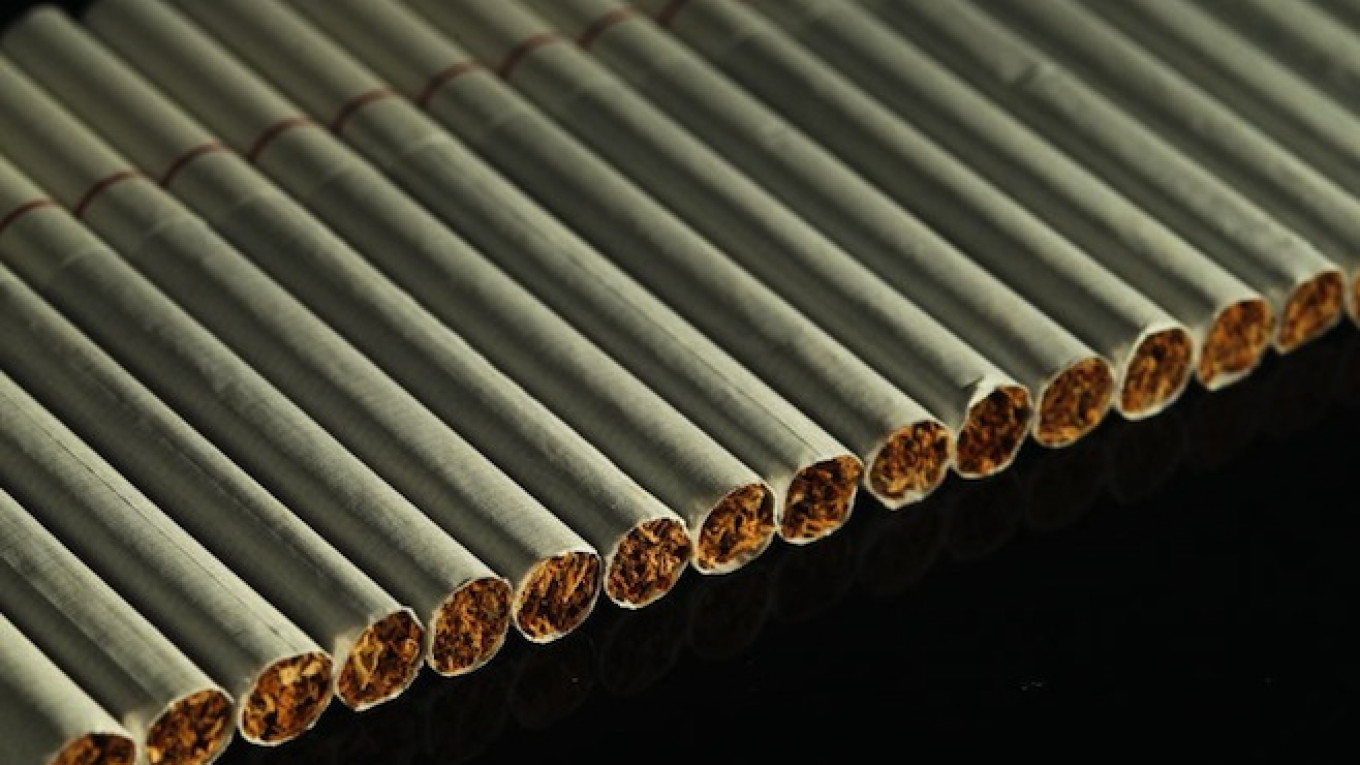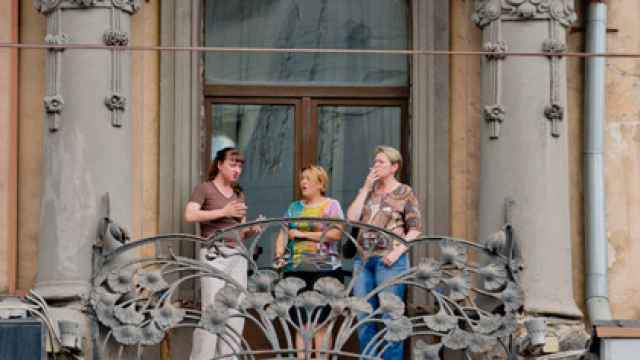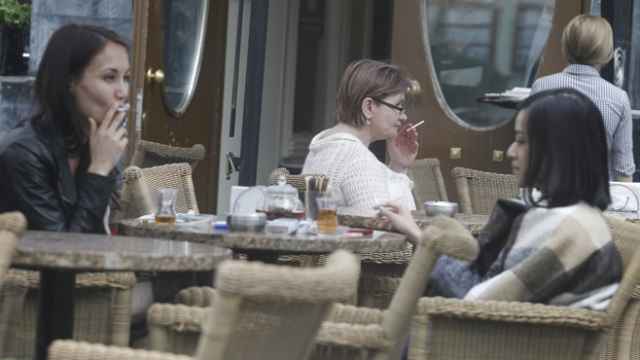Russia's largest tobacco companies this week sent a letter to President Vladimir Putin imploring him to oppose a parliamentary initiative to set a minimum price on tobacco products, business newspaper Vedomosti reported Friday, citing a copy of the letter.
Although 60 percent of men and 25 percent of women in Russia smoke, according to the most recent World Bank data, the lower house of Russia's parliament, the State Duma, has been cracking down on the habit. Perhaps because, as Prime Minister Dmitry Medvedev said in 2012, almost half a million people a year from smoking and second hand smoke. This summer, smoking in Russian bars and restaurants was banned.
A bill to set a minimum price of 55 rubles ($1.3) per pack and then raise it in line with inflation was submitted to the Duma in September. This represents a major price hike: According to a tobacco industry source quoted by Vedomosti, 40 percent of cigarettes sold on the Russian market cost under 44 rubles, and a quarter of them are made by Russian companies.
In their letter, four of Russia's biggest tobacco producers — Donskoi Tabak, United Tobacco Factory, Usman-Tabak and the Baltic Tobacco Company — said the law would have a “detrimental impact on the domestic tobacco industry,” killing their competitiveness in the face of larger, multinational tobacco companies.
Vedomosti said it was unable to confirm the authenticity of the letter. Kremlin spokesman Dmitry Peskov told the paper he was not aware of it.
Cheap, locally made cigarettes are considerably lower in quality. Meanwhile, foreign companies dominate Russia's $20 billion cigarette market, and foreign brands like Lucky Strike and Parliament already sell at prices around 55 rubles.
Playing on a surge of nationalism that has swept through Russia after the annexation of Crimea from Ukraine in March, Vedomosti cited the letter as arguing that the bill is shortsighted and unpatriotic in the face of hostile sanctions by Western countries — where much of their competition is headquartered.
A survey by state-controlled pollster VTsIOM in early September suggested that more than 70 percent of Russians would ban imports of booze and cigarettes from Western countries in retaliation for sanctions, but few would give up foreign cars or pay an additional tax on vacations abroad.
The bill is currently being considered by a Duma committee and is scheduled to be brought to session on Nov. 10.
A Message from The Moscow Times:
Dear readers,
We are facing unprecedented challenges. Russia's Prosecutor General's Office has designated The Moscow Times as an "undesirable" organization, criminalizing our work and putting our staff at risk of prosecution. This follows our earlier unjust labeling as a "foreign agent."
These actions are direct attempts to silence independent journalism in Russia. The authorities claim our work "discredits the decisions of the Russian leadership." We see things differently: we strive to provide accurate, unbiased reporting on Russia.
We, the journalists of The Moscow Times, refuse to be silenced. But to continue our work, we need your help.
Your support, no matter how small, makes a world of difference. If you can, please support us monthly starting from just $2. It's quick to set up, and every contribution makes a significant impact.
By supporting The Moscow Times, you're defending open, independent journalism in the face of repression. Thank you for standing with us.
Remind me later.






